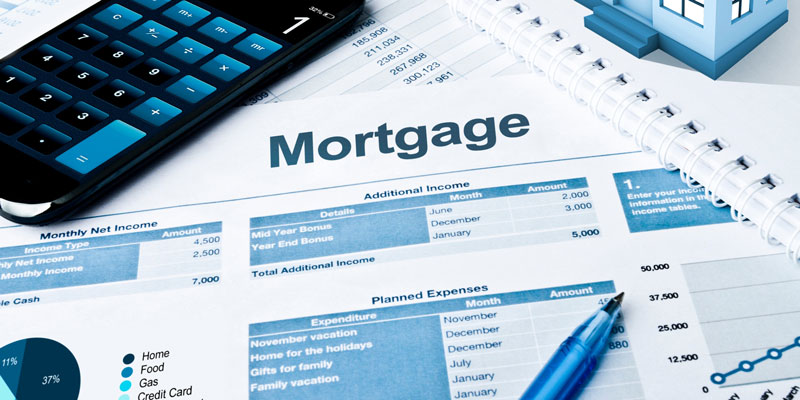Closing Costs In New York: All You Need To Know
Feb 06, 2024 By Triston Martin
Closing costs are the fees that you must pay when you close on your home. These fees include attorney fees and other taxes. They can also include mortgage fees and escrow fees, as well as other expenses. These costs can be anywhere from one per cent to ten per cent of the total cost of the house or property, including taxes for both the buyer and seller. Both the buyer and seller are responsible for paying closing costs.
If you are wondering how much closing costs you would have to pay, don't worry! We are here to help. Mainly the closing cost depends on two factors; one of them is the sale price of the house, and the other is where the property is located. Also, don’t forget that New York has the highest foreclosure costs in the United States.
Now, for a better understanding of closing costs in New York, let's discuss it in detail.
What's Included in New York Closing Costs

If you are a New York Resident, you must be well aware of the fact that closing costs are an undeniable part of the home-buying or home-selling processes. You usually must pay 1.5-5% of the home's price in New York State.
For reference, if the total cost of your house is 400,000 USD, the closing cost of the property will be somewhere between 7,000 and 20,000 dollars. This might seem very high, but if you see it in comparison to your property price, it is not that much. The types of fees vary depending on the buyers and sellers.
In general, closing costs cannot be avoided, but you may be able to avoid paying them out of pocket by requesting seller concessions, filing for closing costs assistance, or including closing costs in your overall mortgage loan amount.
When it comes to closing costs of houses and mortgages, there is a combination of fees that form a single financial entity. All these fees are separate from the downpayment of the house. The value of these fees varies depending upon the location and size of the house and many other factors.
The landscape of closing costs includes:
- Loan Origination Fee
- Funding Fee
- Loan Discount Points
- Credit Report payments
- Hazard Insurance
- Real Estate Taxes
- Local Taxes
- State taxes
- Title Insurance
- Recording Fees
Closing Costs for Buyers in New York

The buyer closing costs are the fees that the buyer pays in addition to the down payment and the mortgage amount of a property. These fees include taxes, mortgage fees, and attorney fees. These are usually calculated manually and vary significantly from person to person.
Mortgage Fees
When you apply for a loan through any financial institute, you are obliged to pay some fees so that your application can be processed. Mortgage fees are one of them. You will be asked to pay a loan origination fee, application fee, and other fees that vary from place to place. They are part of the usual loan closing costs.
Inspection Fee
Your lender may need to do a home appraisal to determine the value of the property and make sure it matches the loan amount. Depending on your property, you may be charged various inspection fees, including settlement fees and termites. It is also recommended that a professional perform a home inspection to identify potential problems before making a purchase decision.
Attorney Fee
If you are a buyer in New York City and want to buy a property, you need an attorney, and for that, you also need to pay the attorney fee and a part of the closing cost.
Loan Origination Fee
A loan origination fee is the fee charged by your lender for the process of setting up and processing a home loan application. This includes everything from the underwriting process to the preapproval letter process for house hunting and the funding process at closing. You should expect to pay 1% of the loan amount for these fees.
Closing Costs for Sellers in NewYork
Seller Concessions
Typically, a seller’s concessions involve covering costs the buyer can’t pay. This means the buyer agrees to a higher mortgage to pay the seller for those closing costs. In a seller-driven real estate market, asking for concessions can damage a buyer’s offer, especially if your competitors opt for “no closing costs.” When you look at the size of your property compared to closing costs, closing costs may seem like an afterthought.
Inspection Fees
Different inspection fees may apply depending on the property. For example, you may be charged a fee for a septic inspection or a fee for a termite inspection. The discount fee lets you reduce your monthly mortgage payment so you can "buy down" your interest rate. A flat fee of 2 per cent is allowed for construction loans if the lender oversees the construction process. You can also have a home inspection done by the buyer. If the inspection finds any hidden defects, it could give the buyer more leverage in the negotiations, or they could withdraw from the deal.
Attorney Fee
In New York, buyers and sellers must be represented by a lawyer or attorney at closing. And for that, you are bound to pay the attorney fee.
Recording Fee
It’s a fee paid by the seller to record the transaction. The average New York recording fee can range from 500 to 700 USD, depending on the property. It is also waived off in some cases. To check whether you need to pay it or not and how much you have to pay, you must consult a financial expert.
Summary
To conclude, closing costs in New York are different types of fees that you need to pay when buying or selling a property in this state. The fees vary depending on the type or value of the property. These include mortgage fees, attorney fees, and other taxes. If you plan to buy or sell a property in New York, you must keep closing costs in mind and plan your budget accordingly to avoid any trouble and make a smooth deal.

Methods Of Debt Consolidation How Does Debt Settlement Work
Feb 19, 2024
Individuals can settle their debt by making a one-time payment to a creditor in return for the cancellation of some or all of their debt. To effectively negotiate a debt settlement plan, you must cease making the monthly minimum payment on that debt. These payments will accrue late penalties and interest, negatively impacting your credit score.

Loan Management: Assessing the Limits of Personal Borrowing
Jan 10, 2024
Can I get more than one loan without security? helps people make choices about their money. We suggest personal loan numbers based on how much money they have.

7 Best Mortgage Refinance Lenders
Jan 14, 2024
Here are the top mortgage refinance lenders that offer reasonable rates and smooth experiences for smarter financial decisions

Adding Stimulus Money on Your Tax Returns
Dec 17, 2023
Do you want to explore the fundamentals of adding stimulus money to your tax return? Do give this guide a thorough read.

7 Health Care Funds You Should Buy
Dec 31, 2023
When selecting what funds to invest in, or in what sector you should specialize in, it is best to consider industries that will always be marketable in all seasons. Healthcare is such an example. Healthcare stocks are defensive and will have some of the highest growth metrics and projections in the market.

Everything You Need To Know About Student Loan Deferral
Oct 02, 2023
Find out how student loan deferral affects your credit score, and see if you can get one. You'll also learn the benefit of getting a deferral and how to go about it.

8 Must-Know Aspects of the Tomo Card: A Comprehensive Guide
Feb 01, 2024
Explore the revolutionary Tomo card, a digital banking solution offering user-centric services, multi-account integration, low fees, and effective financial management tools.

Analyzing the Value of Tuition Insurance: Is It a Smart Investment?
Feb 22, 2024
Tuition insurance ensures financial protection in unplanned situations such as untimely illness or fraud. Learn about it in-depth before purchasing this insurance

What are IRS Payment Plans – A Detailed Guide
Dec 18, 2023
Are you interested in learning about the IRS payment plans and how they can benefit you? Then this article is just for you.

Unlock the Secrets: How to Get Your Hands on Vanguard VTI Total Stock Market ETF Units
Mar 16, 2024
Discover how to invest in Vanguard VTI Total Stock Market ETF: steps, benefits, and why it's a smart choice for US market exposure

What Is A Price Protection And How To Use It?
Jan 12, 2024
It may be frustrating when you buy something to find out that it will soon be on sale. On the other hand, your credit card might save the day.

How to Check Your Credit Card Application Status
Dec 01, 2023
Get the help you need to know your credit card application status! Find out what steps you should take and how to make sure the process runs smoothly.